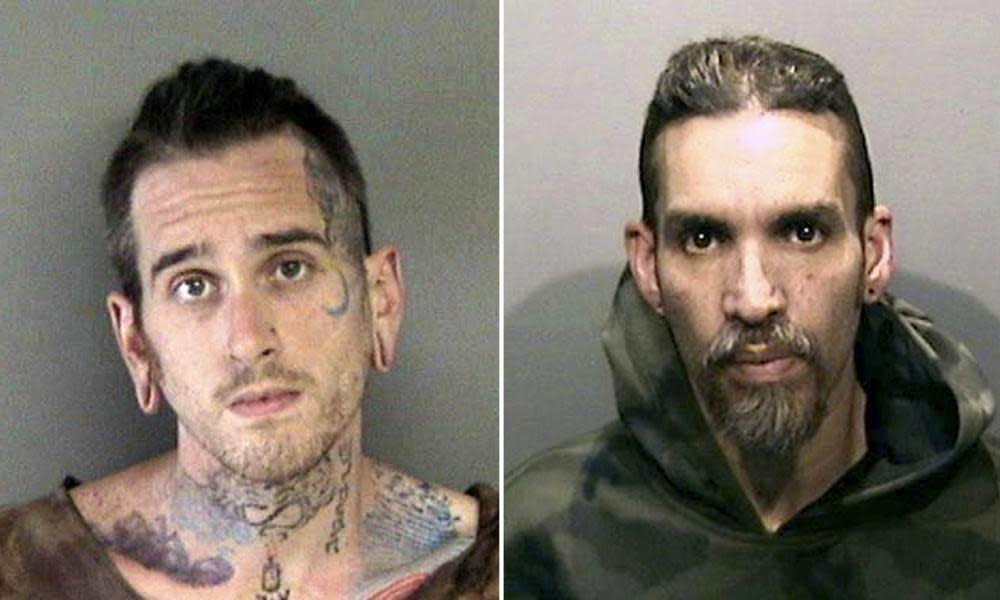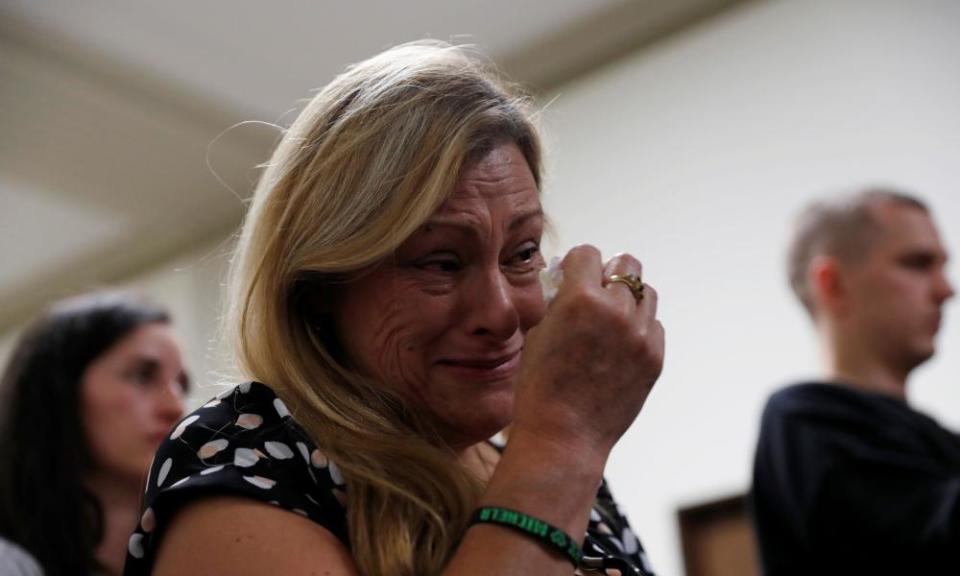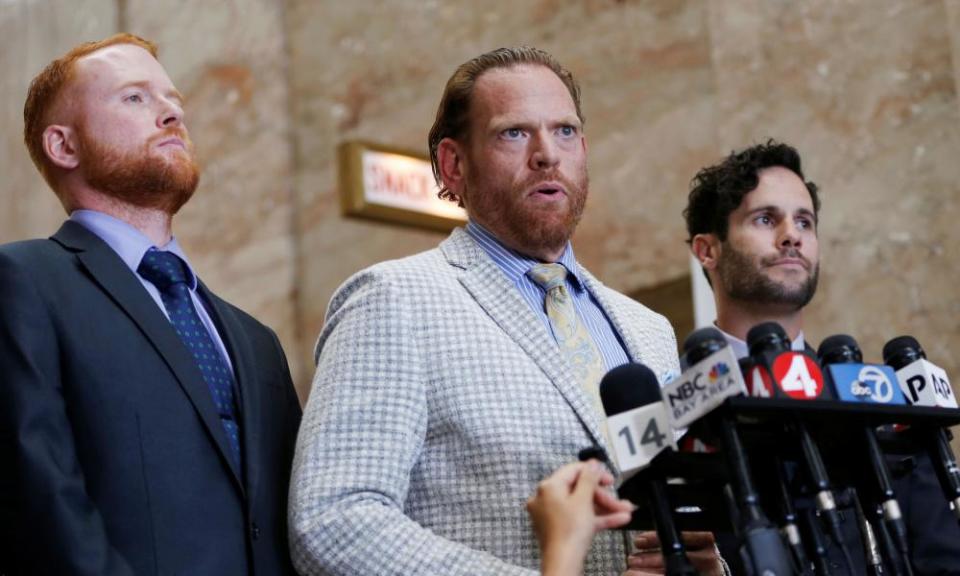Oakland's Ghost Ship fire: one man acquitted of 36 deaths but jury deadlocked on second

Almost three years after a fire tore through Oakland’s Ghost Ship warehouse, killing 36 people, a jury has acquitted one man of involuntary manslaughter but was unable to reach a verdict on the master tenant.
Jurors were “hopelessly deadlocked” in the case against Derick Almena, 49, who illegally rented out the space and developed it as an artists’ commune, said the superior court judge Trina Thompson on Thursday. “I must declare a mistrial.”
Related: Evictions and 'criminalized spaces': the legacy of Oakland's Ghost Ship fire
Almena had faced up to 39 years in prison over the 2 December 2016 fire.
Max Harris, 29, Almena’s purported right-hand man, was found not guilty on all charges.
Authorities said that Almena ignored fire codes and warnings that the space was hazardous when he illegally converted it to living quarters. He filled the building with Balinese statues, antiques, discarded material and wooden pallets, racking up a history of violations and complaints.
Prosecutors alleged the two men knowingly packed dozens of people into “a fire trap” the night of the blaze. That night, the warehouse was the location of an electronic music party that Harris had helped to plan. Almena often hosted for-profit concerts at the commune, even though it was not licensed for entertainment.
Almena – who lived in the warehouse with his family – became the object of ire in the wake of the fire after after he posted on Facebook, just hours after the flames broke out: “Everything I worked so hard for is gone. It’s as if I have awoken from a dream filled with opulence and hope … to be standing now in poverty of self worth.”
The post was later deleted. Past residents and artists later came forward to describe not only dangerous living conditions at the warehouse, but what they called Almena’s erratic, manipulative behavior.
Almena and Harris had both pleaded no contest to the charges as part of a plea deal, but a judge rejected the deal after he ruled that Almena had not shown sufficient remorse during the sentencing hearing.
The Ghost Ship disaster was one of the deadliest structure fires in US history and dealt a devastating blow to the Bay Area’s underground arts and music scene. Many of the those who died that night came from within the community, including musicians, artists, students, creatives, teachers and photographers.

The tragedy brought into focus the harsh reality of the housing crisis, and the hazardous conditions it was forcing local artists to accept in order to continue living and working in the Bay Area. Following the fire, some were evicted from similar spaces.
Attorneys for Harris and Almena attempted to turn the blame on the city of Oakland, arguing that officials responding to complaints could better spot potential fire hazards than a warehouse of artists.
Thursday’s announcement followed months of court proceedings, which were prolonged when the judge replaced three of the jurors with alternates and ordered deliberations begin anew.
Victims and family members crowded into a hot hallway inside an Oakland courthouse, where they waited to enter the courtroom where the verdict would be read. The courtroom filled quickly and dozens of onlookers were turned away.
After nearly an hour, Curtis Briggs, an attorney representing Harris, emerged from the courtroom and sighed as he hugged another member of the legal team.
In a statement to the press after the verdict had been announced, Briggs and other lawyers for the defendants criticized city officials for failing to tackle the lack of affordable housing.

Oakland needed to use this opportunity to “clean house”, said Briggs, who added that no officials took responsibility for the lack of oversight when it came to building inspections and violations.
“None of this ever would have happened in the first place if the income inequality … and the housing crisis weren’t as bad and wasn’t permitted to get as bad in the Bay Area and in Oakland,” said Taylor Smith, another attorney for Harris. “These artists were living in this warehouse because they didn’t have too many other options. They were going to be on the street otherwise. They were living there out of necessity and there are many other warehouses in Oakland like the Ghost Ship.”
The relief expressed by Briggs and his colleagues stood in contrast to the grief of family members who had hoped for a different result.
Mary Vega, whose son Alex Vega, 22, was killed in the fire, expressed disappointment at the verdict. “I lost my son and this is the outcome?” she said. “I am not happy.”
Mary’s other son, Alberto, said he was haunted by the fire.
While Harris is now poised to walk free, the mistrial means the case against Almena remains open. Kevin Dunleavey, the Alameda county chief assistant district attorney, said he and other members of the district attorney’s office plan to review the case and evaluate whether the retry Almena.
“Since the beginning of this case, our hearts have been with the families of the 36 victims that died in this unspeakable tragedy,” said Kevin Dunleavy, the chief assistant district attorney. “That still remains our focus.”
The family members of victims, who appeared worn down by the lengthy trial, listened to Dunleavey in somber silence.
Tony Serra, an attorney for Almena, said they were ready for whatever the district attorney’s office decides. He said: “I’m pained, I’m anguished, but goddamnit, we will win next time.”

